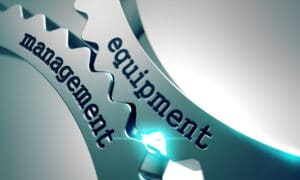The 2000 British rowing crew is renowned for their dedication and singularity of focus that guided them to victory. For every conscious decision each member asked himself, “Will it make the boat go faster?” The obvious answer: If it makes the boat go faster, keep it, do it, use it; if not – chuck it.
The point is that anything that does not help you achieve your goal is dead weight or a distraction. Even things that seem good can, in fact, be damaging to your cause.
Now is a good time to evaluate the products and services you offer. Even take a careful look at internal procedures and operations – all the things you as an organization do – where you are your own customer.
Two Questions
1. What are you doing that you should not be doing?
2. What should you (or could you) be doing that you are not doing?
Before answering, grasp your business better by defining it – What business are you (really) in? Simple question, right? But have you really defined it for yourself? If you answer industrial apparatus sales and service, is everything you’re doing geared in that direction, or are you held back by dead weight and distraction?
The “Thou Shalt Nots”

Companies often chase rabbits down holes or shiny objects that disguise themselves as cost-saving efforts or grand opportunities. The Opportunity Cost of these is lost revenue and momentum in the real business. Let’s look at one example of each.
How easy is it for a company with mechanically-inclined hands-on technicians to have them doing company vehicle maintenance to save the cost of outsourcing it. But every hour spent changing oil and rotating tires is an hour not being billed out to paying customers. It’s an hour yielded to your competition. Let the neighborhood garage service the trucks (their business) while your techs focus on yours.
Thou Shalt Not Chase Rabbits Down Their Hole
Thou Shalt Not Chase After Shiny Objects
Business ventures often look great, even shiny, to business minded people. A colleague brought this to the attention of one of our customers (an apparatus repair shop) who had formed a software company, in part to develop software for internal use in the apparatus repair business.

Colleague: “What business are you in?”
Shop owner: “Apparatus repair. You know that.”
Colleague: “What business are you in?”
Shop Owner: “Apparatus repair. What are you getting at?”
Colleague: “Aren’t there software companies that already do everything you’re trying to develop… at the expense of building your repair business?”
Fortunately for us the shop owner got the point and refocused on the repair industry and left repair-oriented software to the people that specialize in it.
Expanding Your Offerings
So, if you’re looking to determine what you Should or Could be doing, here are a few industry trends that could be possible expansion areas for someone already in the apparatus sales and service business.
Replace vs. Repair
We consistently hear companies are opting to replace motors of 50hp and below instead of repairing them. This trend may shift the repair/sales weights for a lot of shops pushing more business and therefore effort to the sales side. I can also be an opportunity to offer add-on services like bearing protection technologies, extended warranties, etc.
Equipment Management

Whether your customers are replacing or repairing, many of them can benefit from a professional equipment management service which can range from routine preventive/predictive maintenance to spare storage. Check out the What’s In Store article in the February 2017 issue of Electrical Apparatus magazine to learn more about how one company has built an equipment management empire.
Remote Monitoring
If you really want to up the game, look into 24/7 remote monitoring for critical machinery. Monitors placed on critical equipment provide a constant data feed to a network and provide alerts when parameters fall outside of preset tolerances. There are a lot of companies jockeying for position in this space and it’s still relatively new but evolving rapidly. Time will tell for sure, but this is likely a good place to invest some time and effort for apparatus-related companies seeking to be relevant as the industry continues to develop.

Regardless of the level of management services you decide to provide, find the right equipment tracking tools to fit your current offerings and also allow for continued expansion of services. Ease of use, document and image storage, and reporting capability are just a few things to consider. Provide your customers real-time 24/7 access to information that incorporates all their own requirements and specifications and you’ll set yourself apart from the competition.
EXPLOIT Success
So, in summary, define what it is that your company does well, expand into areas congruent with your core competencies, and with each decision ask yourself, “Does it make the boat go faster?”

